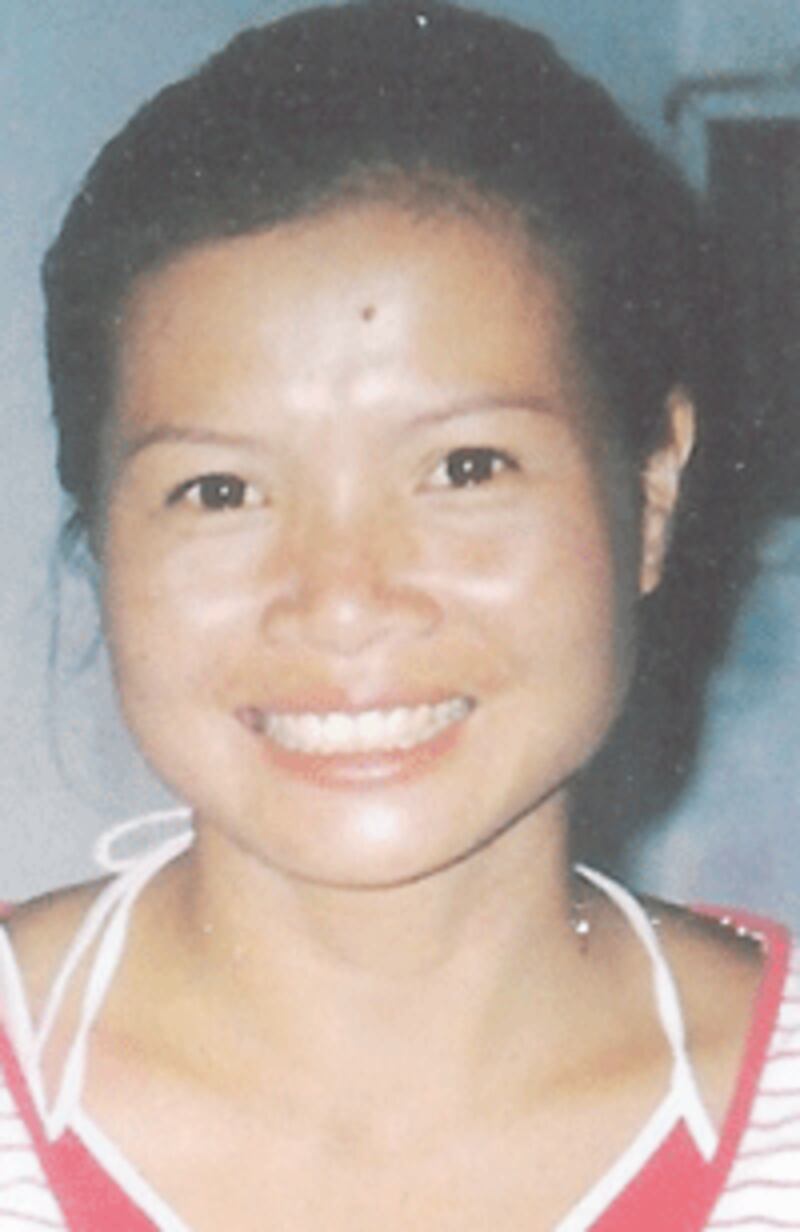A Lao activist held incommunicado for three months will continue to be detained until she divulges details to the authorities about a planned meeting with an unidentified influential group over a land dispute, police have told her husband.
The authorities are pressing activist Sivanxay Phommarath for details of the meeting she and other villagers had scheduled to have with the group in September to seek advice on getting better compensation for land being taken over for a road expansion, her husband Soukphaouane Phommarath told RFA’s Lao Service.
The villagers from Khammouane province’s Nhommalath district had traveled to Savannakhet city to meet with the group, referred to them by their relatives in the U.S. as possible sources of help over the compensation issue.
After finding no one at the planned meeting spot—on a bridge over the Mekong River on the Thai-Lao border—the villagers returned home to Nhommalath but were taken into custody for questioning from authorities on the reason for their trip.
All were released except Sivanxay, who was taken to the Khammouane provincial prison in early October.
No charges have been filed against her, according to her husband.
A prison guard told Soukphaouane, who has been trying daily to meet with his wife, that she is not an inmate and has been detained at the request of the prosecutor while they investigate who the villagers were trying to meet with, he said Monday.
Investigators do not accept Sivanxay’s response that she does not know the background of the influential group the villagers aimed to meet with, the guard told him.
Soukphaouane was told that if Sivanxay stuck to that response, she would be held indefinitely, he said.
Under wraps

Soukphaouane said he has been unable to obtain any information about his wife from the Khammouane investigation office.
At the provincial court, the chief prosecutor said he was too busy to speak with Soukphaouane, the husband said.
Last week, Khammouane security officials contacted by RFA said Sivanxay’s family members are not allowed to visit her because her case is still under investigation.
But Khammouane police contacted by RFA denied any knowledge of Sivanxay’s detention, saying no one had been arrested in the case.
A Nhommalath resident asked about Sivanxay said that the locals cannot speak about her case freely.
“We’re in no position to say anything about this. We don’t know what’s going on. This is official business; we cannot talk too much about it,” he said, speaking on condition of anonymity.
Road expansion
Officials representing Nhommalath district had met with Sivanxay and other villagers in August to present offers of compensation for land needed for the road expansion project near the Nam Theun 2, Laos’s largest hydroelectric dam, according to a source living in Seattle with contacts in the area.
The Nam Theun 2 Dam, built on a tributary of the Mekong River, has been producing electricity for sale to Thailand and into the Laos grid since March 2010, following the resettlement of 6,300 people living in the assigned reservoir area on Laos’s Nakai Plateau.
Though Sivanxay parted with one parcel of her family’s land and received compensation, she refused to vacate a second parcel adjoining the proposed site of construction, sources said.
Khampouvanh Xayalath, the Nhommalath district officer who had called villagers to the August meeting, said that Sivanxay and her husband had “issues” with district authorities about land.
Since all land in Laos is owned by the state, residents can be forced off their land with little or no compensation as they are pushed out to make room for development projects.
Lawmakers have expressed concern that inadequate land surveys ahead of major development projects have led to a rash of complaints over encroachment on villagers' land and created a range of environmental problems, according to the state-owned Vientiane Times newspaper.
During the last session of Laos’s parliament, the National Assembly, at the end of the year, lawmakers debated a new draft of a national land policy strategy aimed at eradicating loopholes relating to land disputes and addressing disagreements between residents and officials over compensation, according to the paper.
Reported by RFA’s Lao Service. Written in English by Rachel Vandenbrink.
